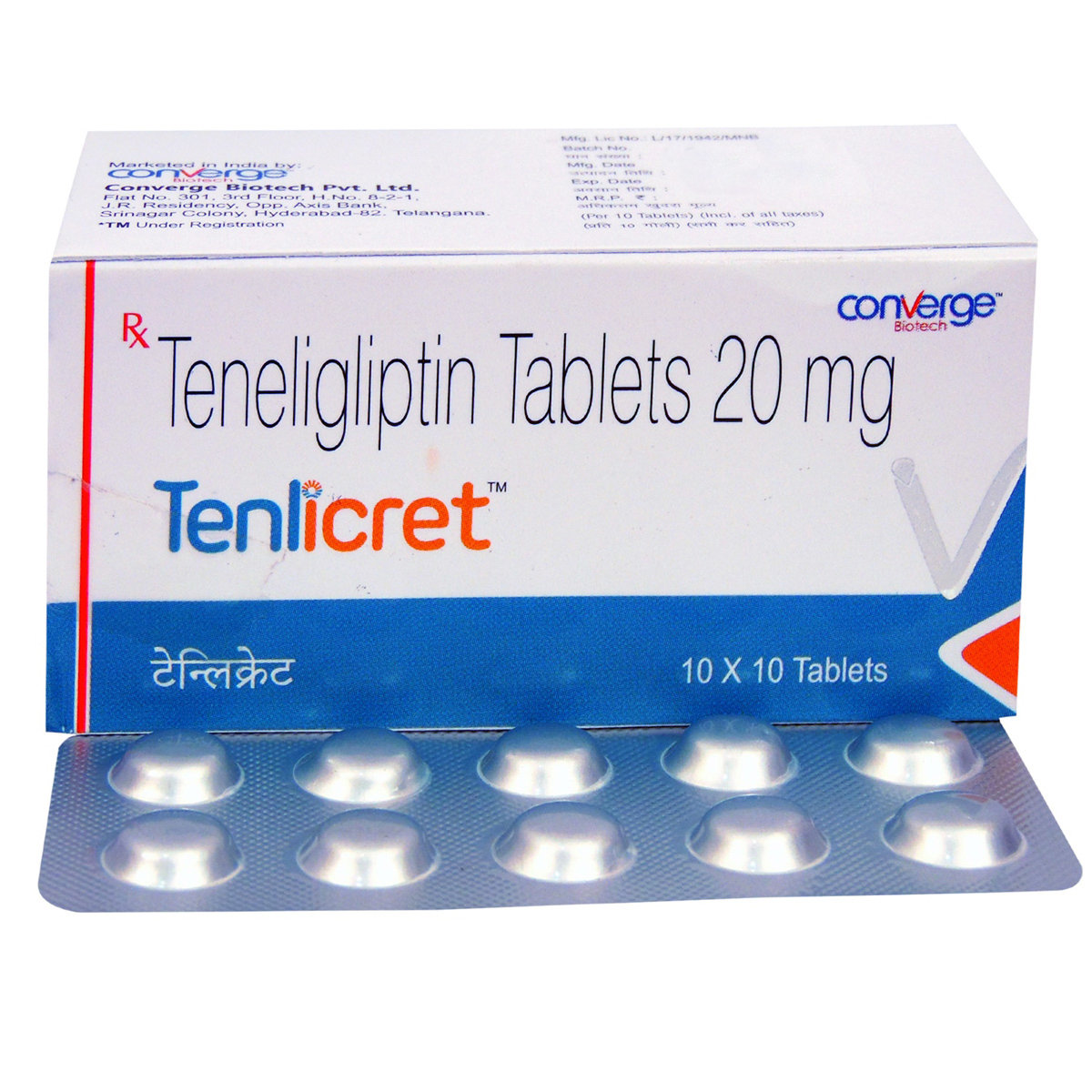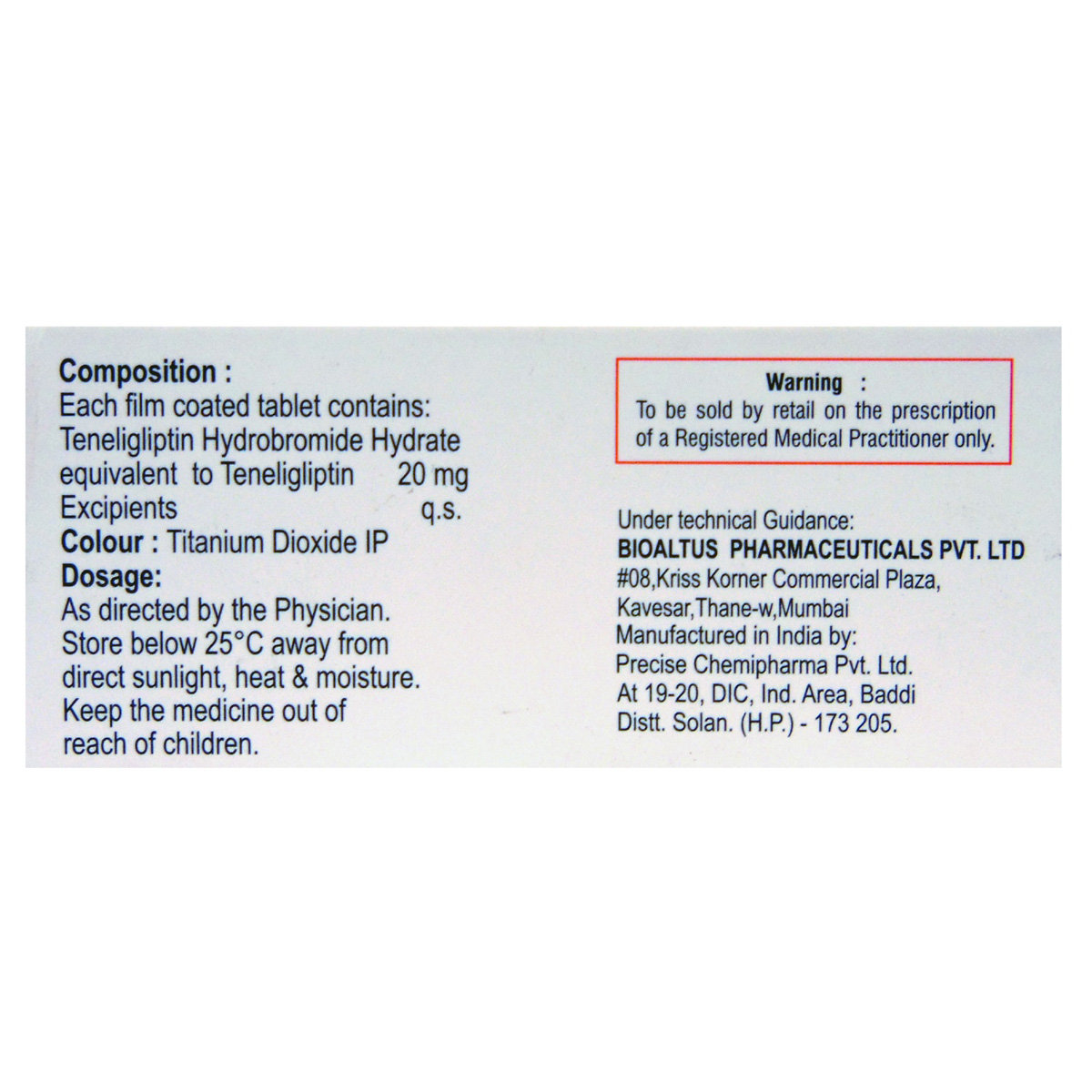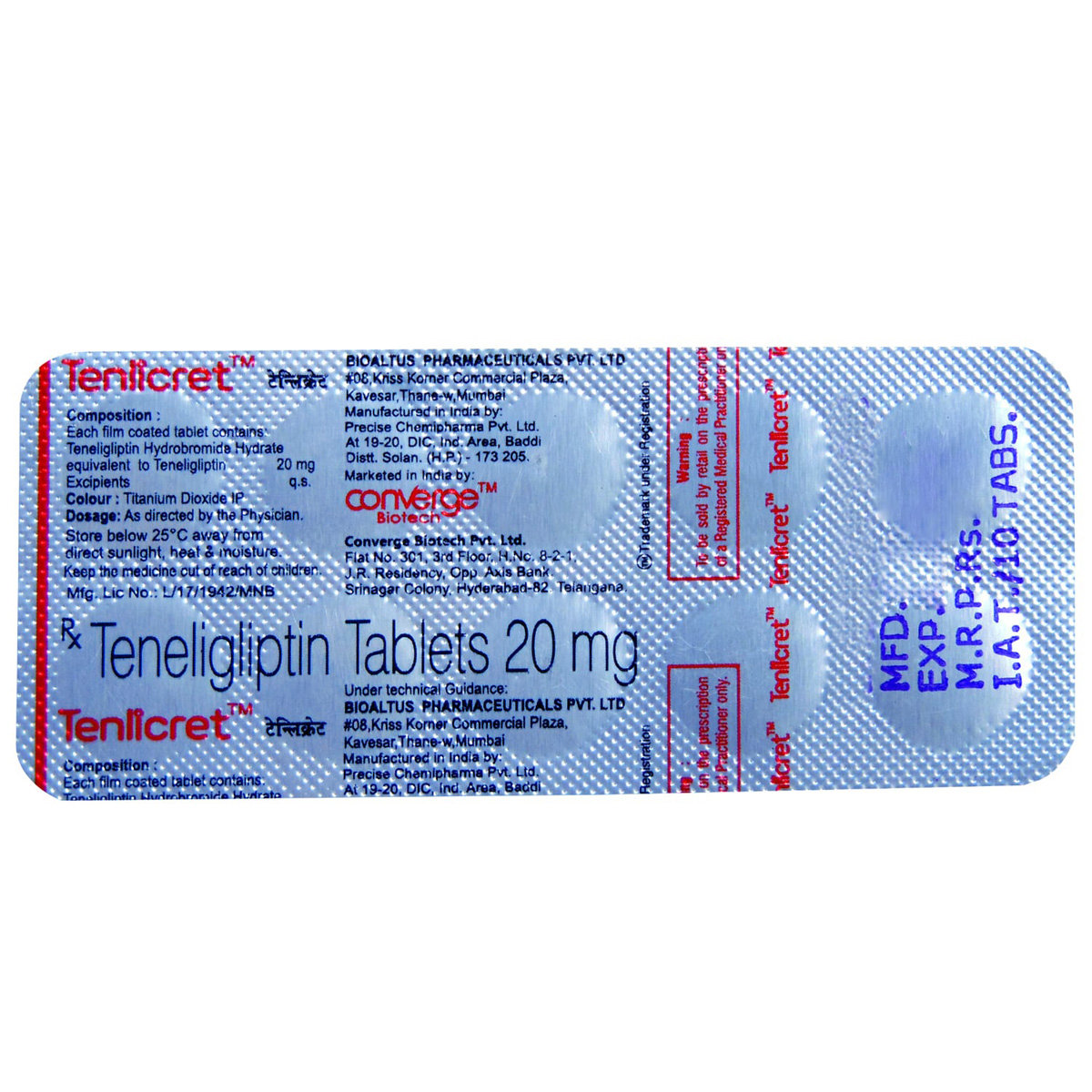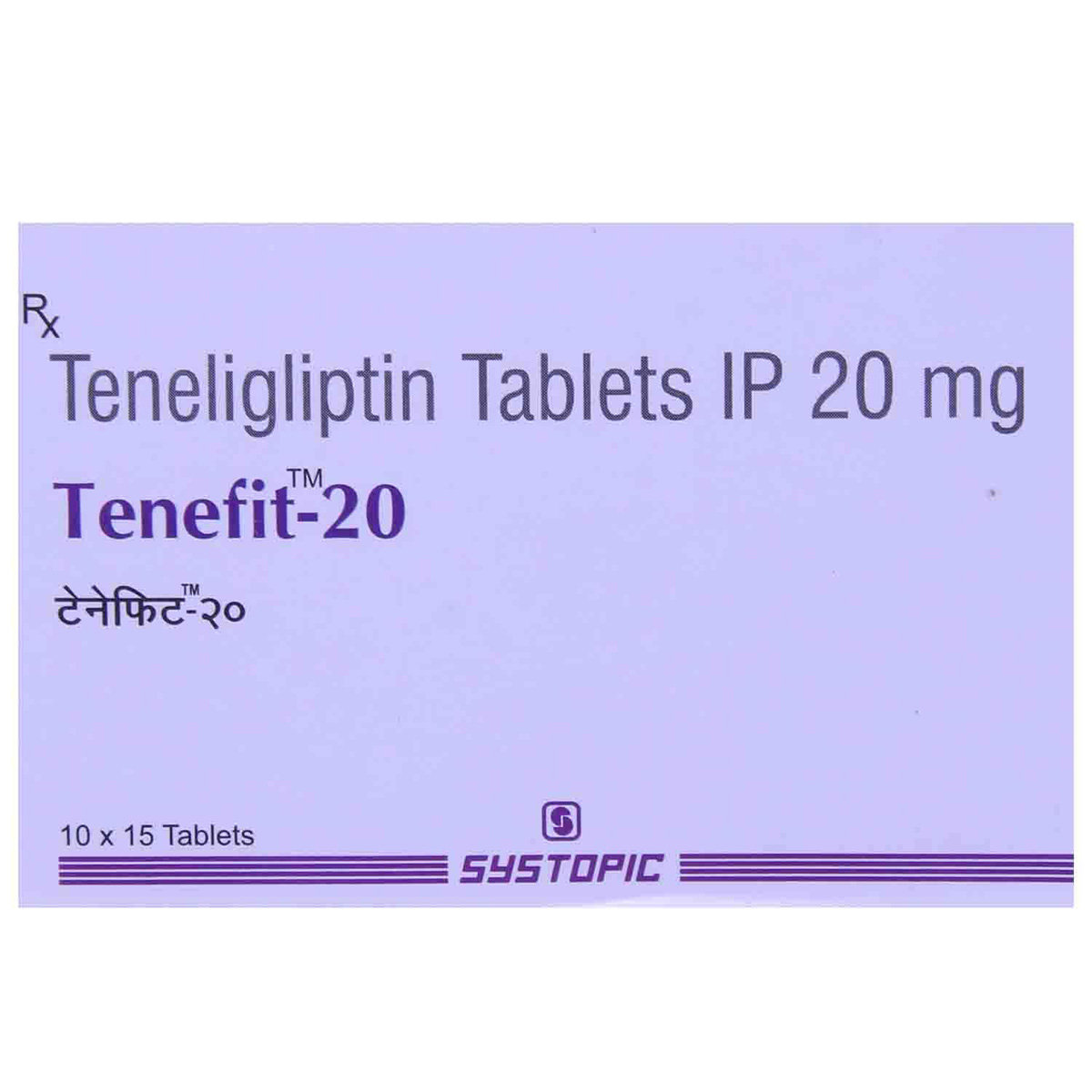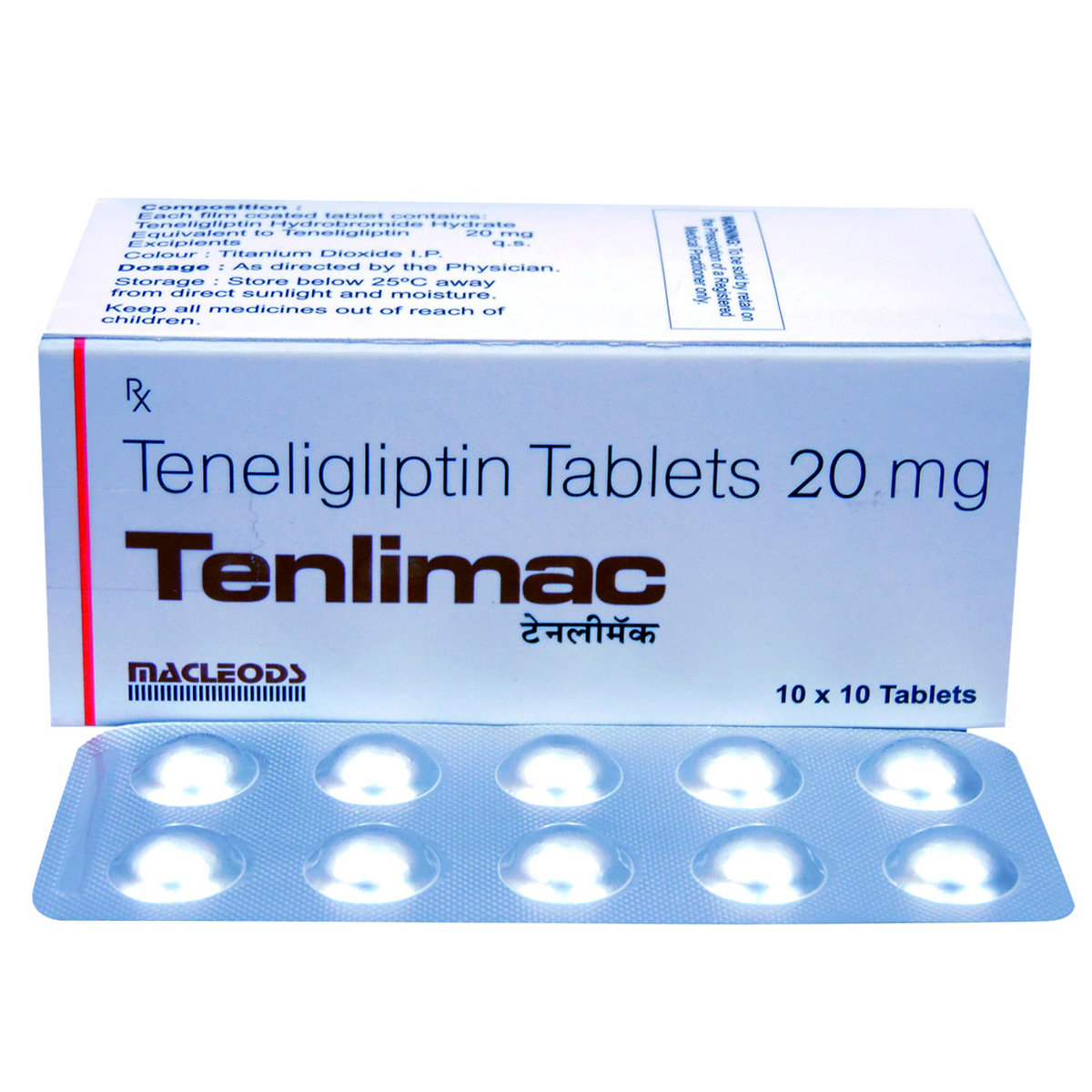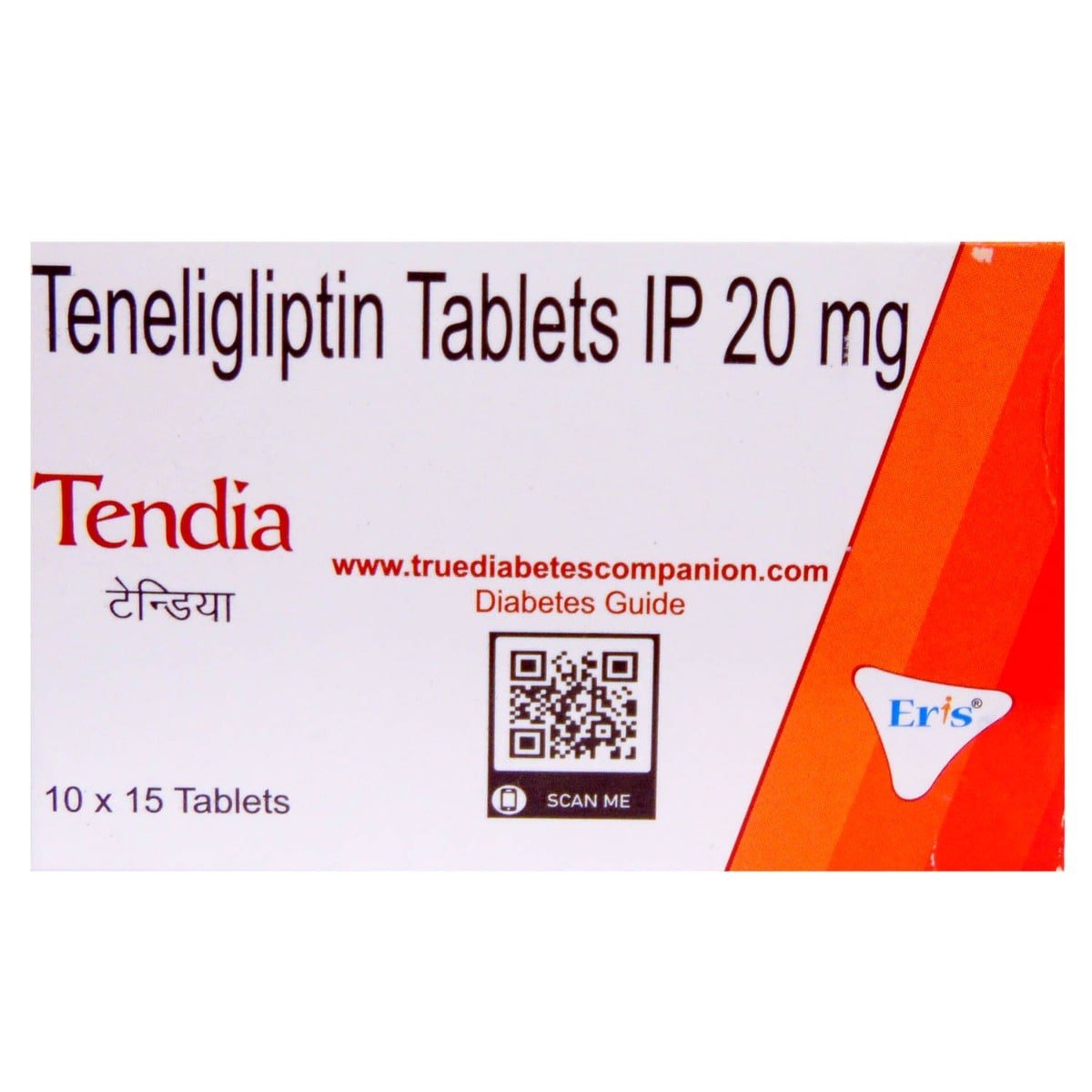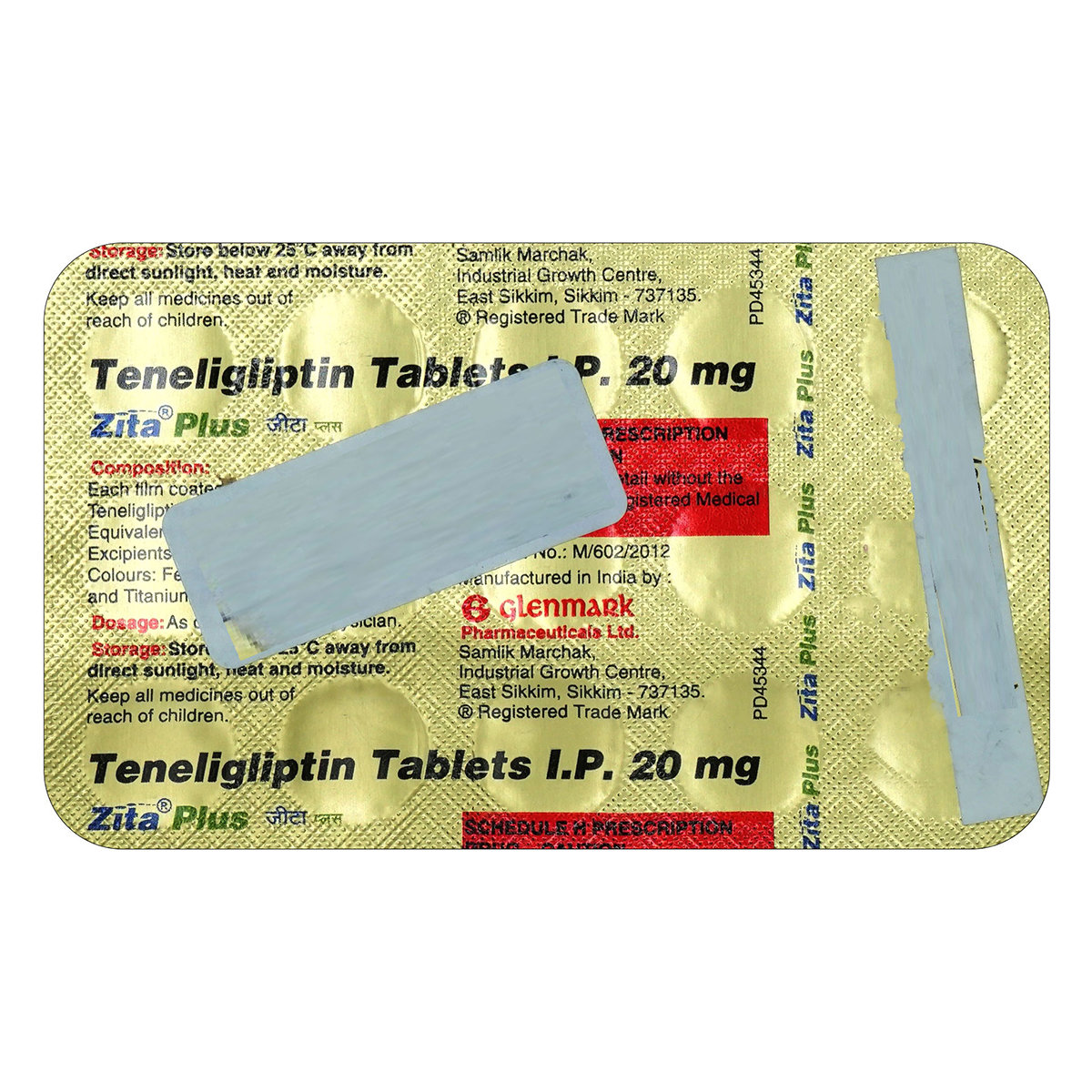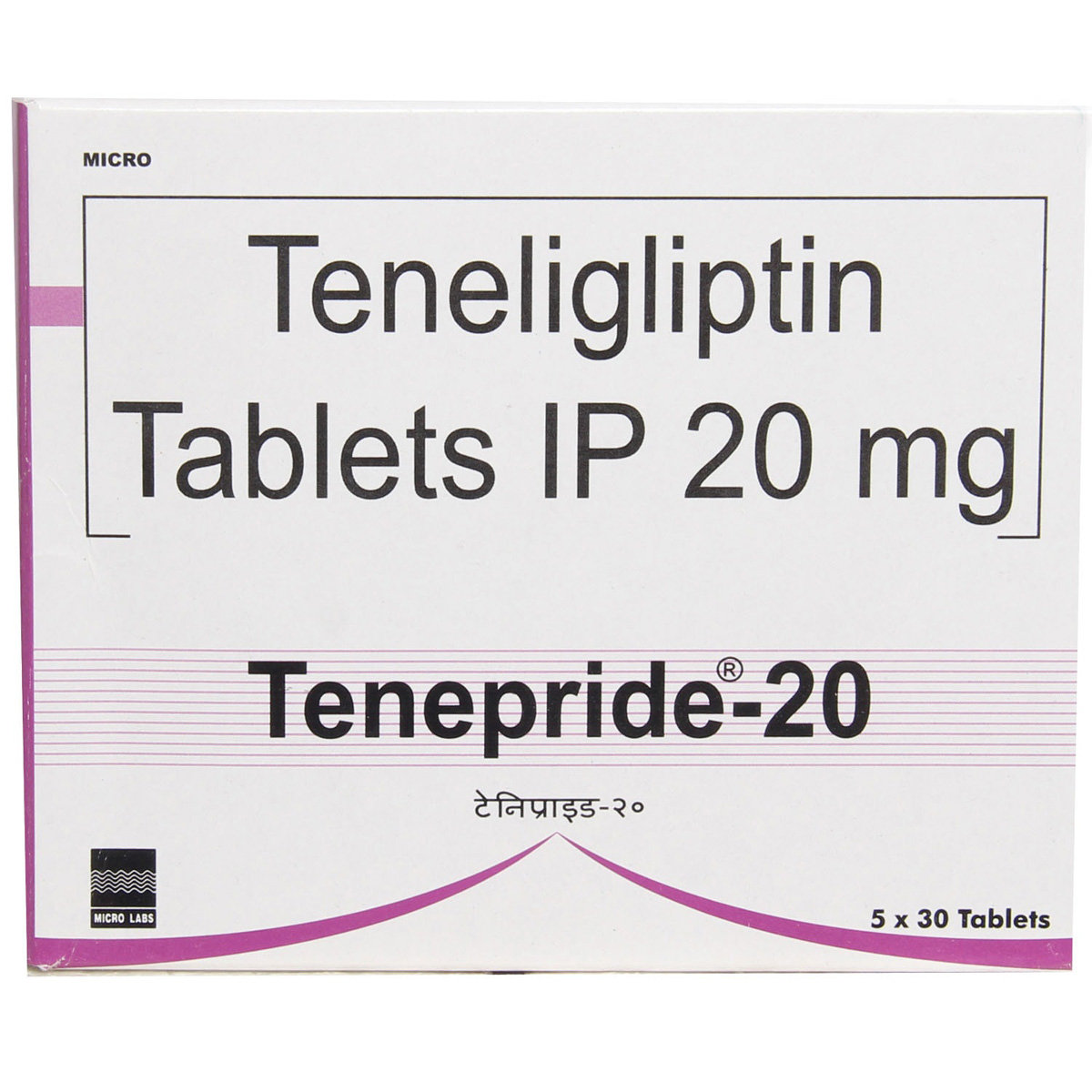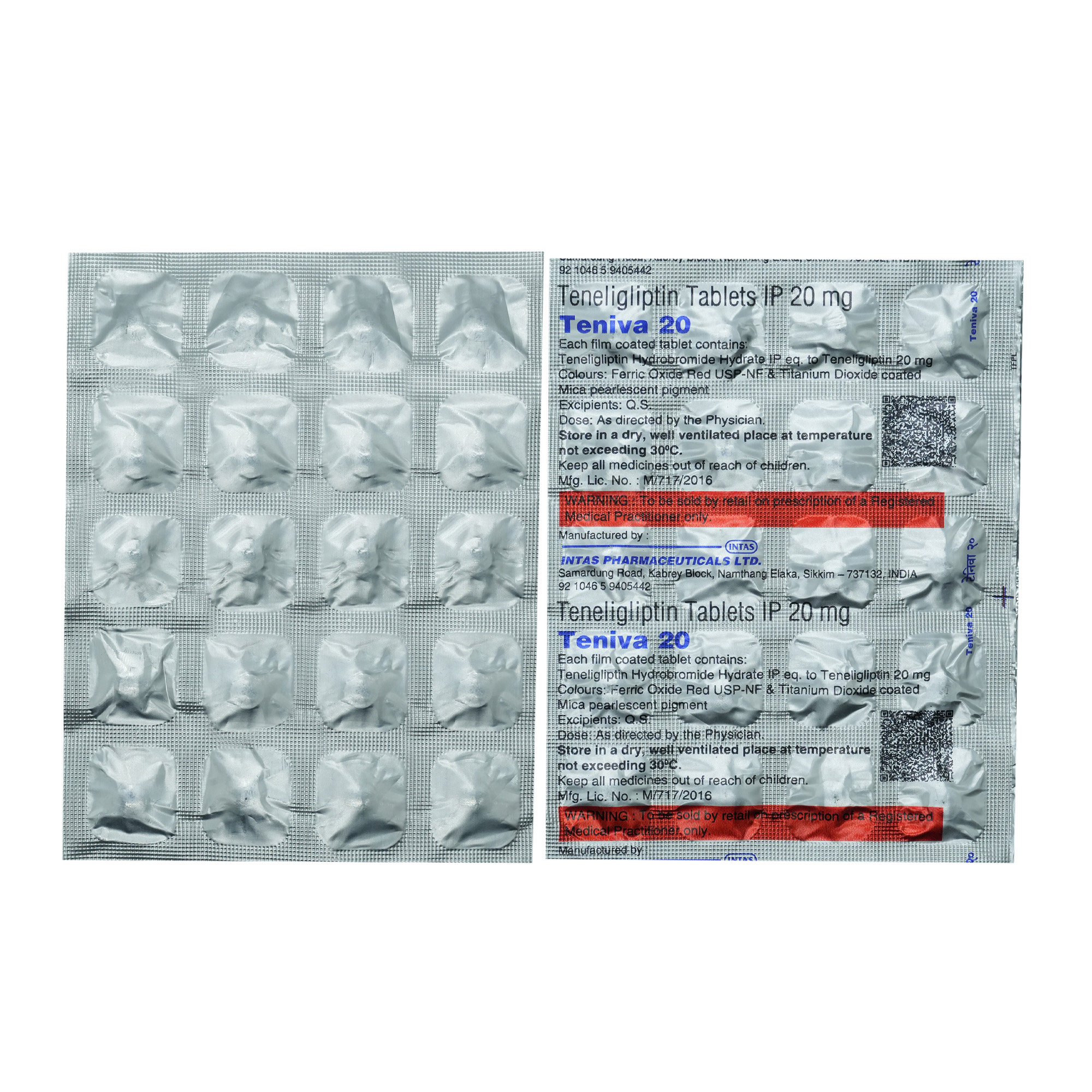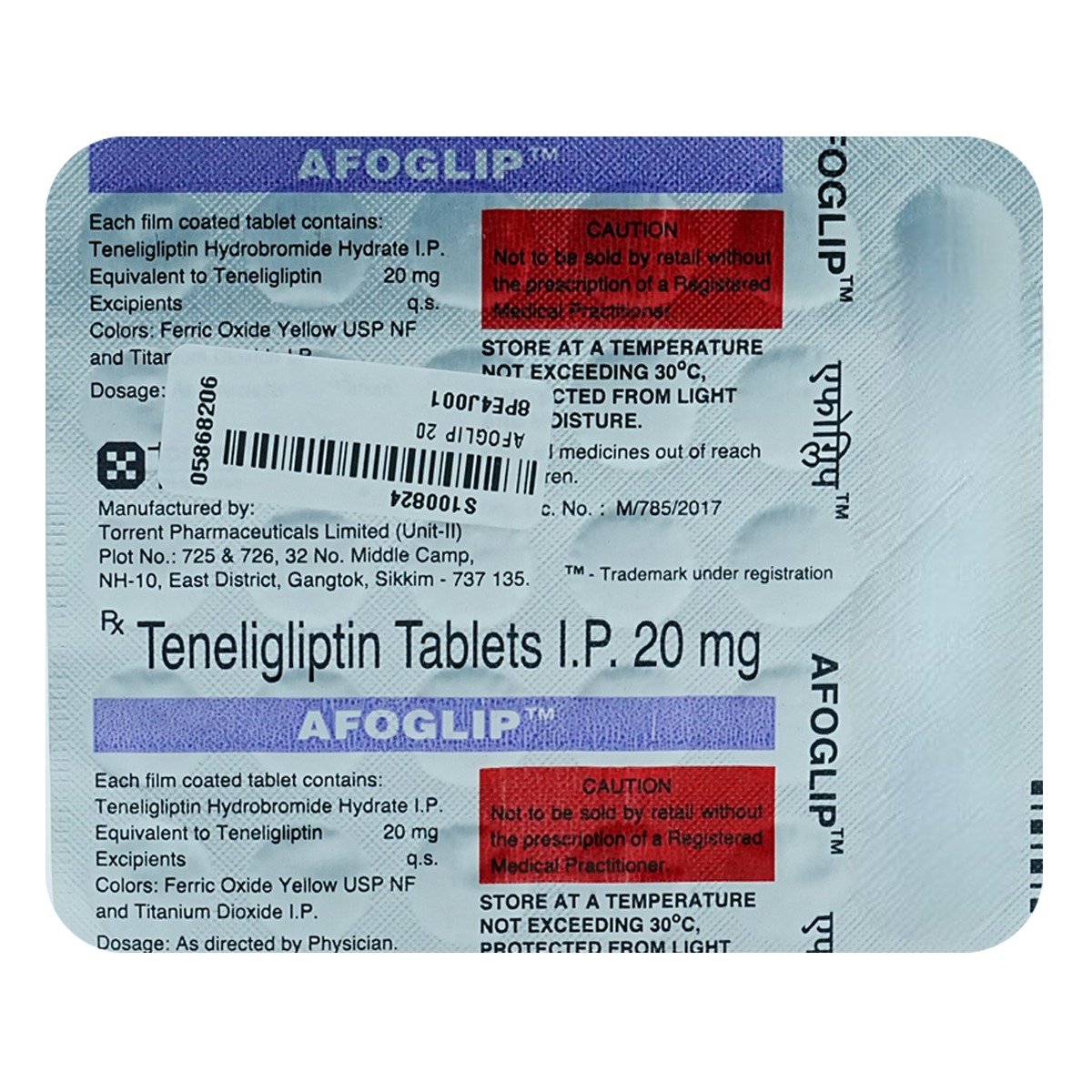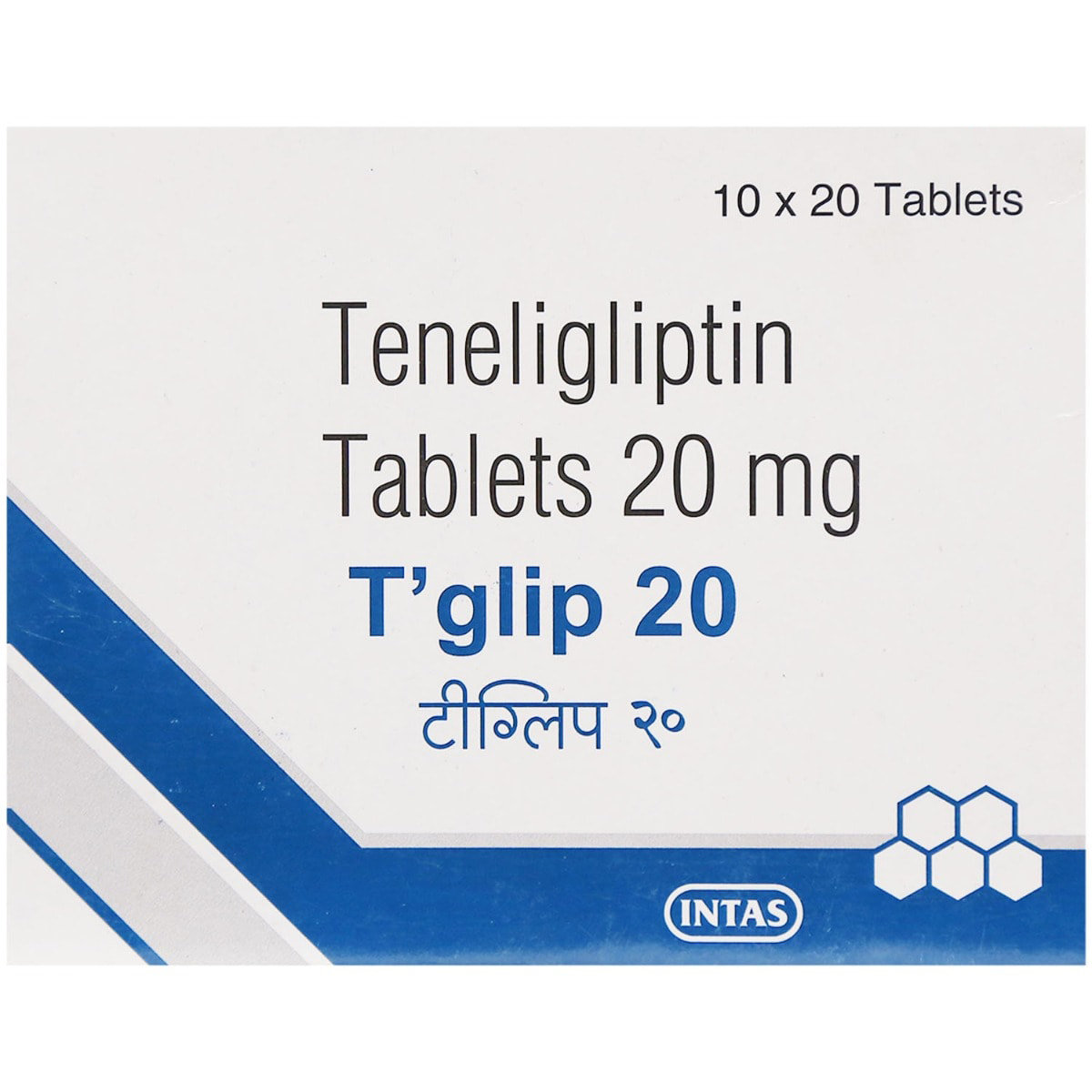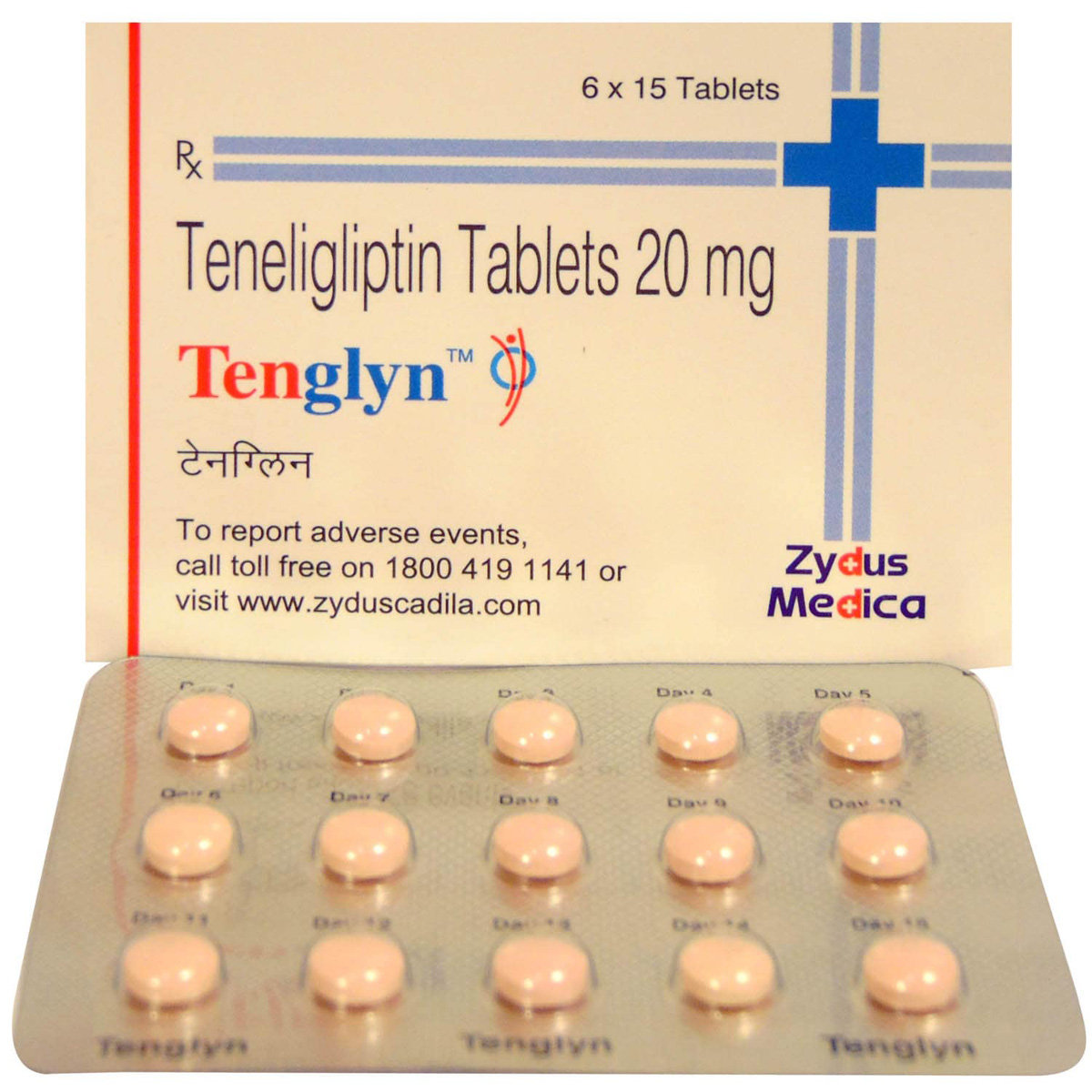Tenlicret Tablet 10's
MRP ₹48.5
(Inclusive of all Taxes)
₹7.3 Cashback (15%)
Provide Delivery Location
Online payment accepted
 Prescription drug
Prescription drugWhats That
Composition :
Manufacturer/Marketer :
Consume Type :
Expires on or after :
Return Policy :
About Tenlicret Tablet
Tenlicret Tablet belongs to the category of medicines called “anti-diabetic” primarily used to treat type 2 diabetes, especially in persons whose sugar levels are too high and cannot be controlled by dieting and exercising. It is used alone or in combination with other drugs to lower blood sugar levels. People with type 2 diabetes either do not produce enough insulin, or the insulin produced cannot perform its function in the body (insulin resistance). Middle-aged or older individuals are most likely to suffer from type 2 diabetes, also known as adult-onset diabetes.
Tenlicret Tablet contains Teneligliptin, which belongs to the class of dipeptidyl peptidase-4 (DPP-4) inhibitors used Tenlicret Tablet is prescribed for the condition of type 2 diabetes when diet and exercise alone cannot control their blood sugar levels. It works by blocking the action of DPP-4 (an enzyme that destroys the hormone 'Incretin'). The enzyme 'Incretins' helps produce more insulin only when required and reduces the liver's blood sugar level when not needed.
Take Tenlicret Tablet as prescribed. You are advised to use Tenlicret Tablet for as long as your doctor has prescribed it for you based on your medical condition. In some cases, you may experience certain common side effects such as headache, hypoglycemia (low blood glucose levels), upper respiratory tract infection, and nasopharyngitis (infection of the nose and throat with a common cold). Most of these side effects do not require medical attention and will resolve gradually over time. However, you are advised to talk to your doctor if you experience these side effects persistently.
Tenlicret Tablet should not be stopped even if you feel better, without consulting your doctor as sugar level keeps changing. If you stop taking Tenlicret Tablet abruptly, it may increase your sugar levels, which could further increase the risk of eyesight loss (retinopathy), kidney (nephropathy), and nerve damage (neuropathy). Please inform your doctor if you have any heart disease is or planning to get pregnant or breastfeed. The safety and efficacy of Tenlicret Tablet in children have not been established, so it should not be given to them. Tenlicret Tablet works best when coupled with a healthy lifestyle like losing weight if you are overweight (BMI>25), eating fewer calories (low fat and sugary food), and being more physically active (at least 150 min of activity every week).
Uses of Tenlicret Tablet
Directions for Use
Key Benefits
Tenlicret Tablet contains ‘Teneligliptin’ which belongs to the class of dipeptidyl peptidase-4 (DPP-4) inhibitors used to treat type 2 diabetes when diet and exercise alone cannot control their blood sugar levels. It works by blocking the action of DPP-4 (an enzyme that destroys the hormone ‘Incretin’). The enzyme ‘Incretins’ helps produce more insulin only when required and reduces the liver's blood sugar level when not needed. Tenlicret Tablet should not be used in patients with type 1 diabetes and for the treatment of diabetic ketoacidosis. Thus, Tenlicret Tablet plays a vital role in controlling blood sugar levels and prevents serious complications of diabetes like eyesight loss (retinopathy), kidney (nephropathy), nerve damage (neuropathy), diabetic foot ulcer, and delayed wound healing.
Storage
Drug Warnings
Tenlicret Tablet should not be taken if you are allergic to Tenlicret Tablet or any of its ingredients. Please inform your doctor if you are pregnant or breastfeeding before starting Tenlicret Tablet . The safety and efficacy of Tenlicret Tablet in children have not been established, so it should not be given to them. Prolonged intake of Tenlicret Tablet may cause acute pancreatitis (swollen pancreas). Increased risk of hypoglycemia (low blood sugar level) can occur when Tenlicret Tablet is added to other anti-diabetic agents or insulin therapy. In this case, your doctor may adjust the dose of Tenlicret Tablet . Severe allergic reactions might occur in some patients taking Tenlicret Tablet like anaphylaxis, angioedema (swelling under the skin), and exfoliative skin conditions. Tenlicret Tablet should not be used in patients with type 1 diabetes and for the treatment of diabetic ketoacidosis.
Drug-Drug Interactions
Drug-Drug Interactions
Login/Sign Up
Drug-Food Interactions
Drug-Food Interactions
Login/Sign Up
Diet & Lifestyle Advise
- Fill your half plate with starchy veggies, a quarter with proteins, and a quarter with whole grain.
- Eat at regular intervals. Do not take a long gap between a meal or snack.
- Monitor your blood sugar level regularly, especially when there are lots of fluctuations.
- Invest in at least 150 min of moderate-intensity physical activity or one hour and 15 minutes of high-intensity exercise every week.
- Lose weight gradually to achieve a healthy body mass index (18.5 to 24.9).
- Replace refined carbohydrates containing whole-grain foods and increase the intake of fruits and veggies and other fiber-enriched foods.
- Reduce intake of saturated fat (or hidden fats) in food like chips, crisps, pastries, biscuits, and samosas. Choose omega-3 fatty acid-containing oils for daily cooking. You can use palm oil, mustard oil, groundnut oil, rice bran oil, and safflower oil for frying.
- Do not take stress as it may elevate your blood sugar level. You can adopt stress management techniques like mindfulness to control stress-related blood sugar changes.
- Opt for low-fat dairy products (low-fat yogurt, fat-free milk, and cheese, etc.).
- Keep your blood pressure as normal (120/80) as possible as it reduces the risk of cardiovascular diseases in diabetes patients.
Side Effects of Tenlicret Tablet
- Headache
- Hypoglycemia (low blood glucose levels)
- Upper respiratory tract infection
- Nasopharyngitis (infection of nose and throat with common cold)
Habit Forming
Therapeutic Class
All Substitutes & Brand Comparisons
RX
Tenefit-20 Tablet 15's
Systopic Laboratories Pvt Ltd
₹101.5
(₹6.09 per unit)
39% COSTLIERRX
Dynaglipt Tablet 10's
Mankind Pharma Pvt Ltd
₹83.5
(₹7.52 per unit)
72% COSTLIERRX
Tenlimac 20 Tablet 10's
Macleods Pharmaceuticals Ltd
₹87
(₹7.83 per unit)
79% COSTLIER
Author Details
We provide you with authentic, trustworthy and relevant information
Drug-Diseases Interactions
Drug-Diseases Interactions
Login/Sign Up
FAQs
Drug-Drug Interactions Checker List
- GLIPIZIDE
- GLICLAZIDE
- GLIMEPIRIDE
- ATENOLOL
- BISOPROLOL
- METOPROLOL
- NADOLOL
- PROPRANOLOL
- BUPROPION
- SELEGILINE
- ISOCARBOXAZID
- PHENELZINE
- ASPIRIN
Special Advise
You should have a test of Glycated haemoglobin (HbA1C) every 3 months to check your blood glucose level control.
Disease/Condition Glossary
Type 2 Diabetes: It is a condition where the body cannot make sufficient insulin or the insulin that it makes doesn't work properly or is utilized by our body. This can cause high blood sugar levels (hyperglycemia). Type 2 diabetes symptoms include increased thirst, frequent urination at night, slow wound healing, increased hunger, fatigue, and blurred vision. There may be weight gain in some cases, while in rare cases, weight loss may be observed. The complication of type 2 diabetes also include neuropathy (nerve problems), nephropathy (kidney problems), retinopathy (damaged retina of eyes or blindness), loss of limbs, sexual dysfunction, and an increase in the chance of heart attack or stroke.

Have a query?
Alcohol
Safe if prescribed
It is best to avoid alcohol while taking medication.
Pregnancy
Consult your doctor
Tenlicret Tablet , safety in pregnant women is not established. So, it should be taken only if prescribed by a doctor.
Breast Feeding
Consult your doctor
Please consult your doctor for advice before taking Tenlicret Tablet .
Driving
Safe if prescribed
There is no sufficient data on the effects on the ability to drive and use machines have been performed. However, do not drive or operate machinery if you experience dizziness.
Liver
Consult your doctor
If u have or had a history or evidence of any liver-related diseases, please consult the doctor before taking medicine.
Kidney
Consult your doctor
If u have or had a history or evidence of any kidney-related diseases, please consult the doctor before taking medicine.
Children
Safe if prescribed
The safety and efficacy of Tenlicret Tablet in children have not been established. Tenlicret Tablet is not recommended in children.

